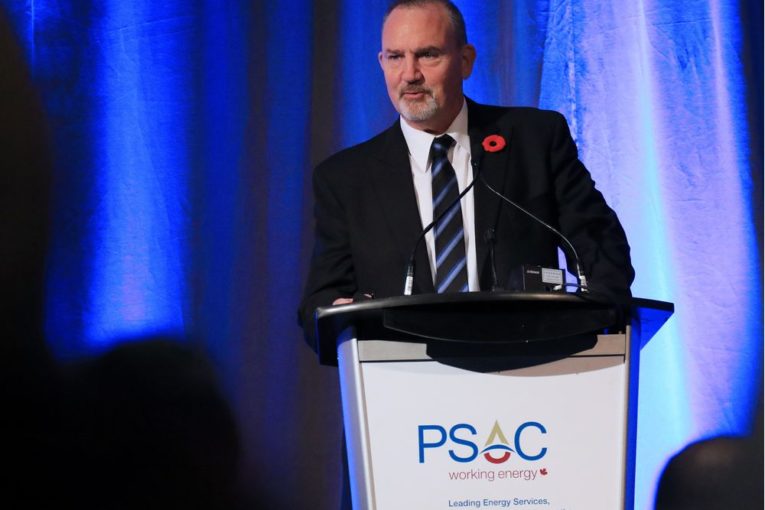
Bob Cochlan has been in the energy industry since 1968 and has seen many booms, busts and battles.
Like many in the oilpatch, he is deeply frustrated with the current gridlock surrounding getting pipelines built and Canada’s inability to get the best price for its resources.
“I am just fed up with the inertia of this country and the indifference of this country,” said the veteran Calgary natural gas liquids consultant.
“Someone needs to raise the temperature of the water here, because we’re going down.”
Across the Canadian energy industry, the mercury is indeed rising in an escalating conflict between two western neighbours.
The cold war between Alberta and British Columbia over the issue of the Trans Mountain pipeline expansion has shifted into a white-hot mode in the past week.
After B.C. proposed regulations to restrict the amount of diluted bitumen heading to the Pacific coast, Alberta announced Thursday it will suspend talks with its neighbour over expanding electricity infrastructure that would help B.C. Hydro send more power into this province.
Electricity is a sideline to the bigger tussle.
Western Canadian crude production is expected to grow by more than 350,000 barrels a day and Alberta needs new pipelines to transport oil to market.
The price differential between benchmark U.S. oil and Western Canadian Select (WCS) heavy crude has expanded, costing companies and the Alberta treasury millions of dollars in lost revenue in recent days.
“In the ‘patch, certainly it’s discouraging and it’s another nail in the coffin,” said Bob Geddes, president of Ensign Energy Services Inc., one of the country’s largest drillers.
“If you can throw a punch and get away with it, and nothing happens to you, you continue to do it.”
In Victoria, the NDP government opposes the $7.4-billion Trans Mountain pipeline expansion moving ahead, which would triple the amount of oil heading west into B.C.
The Horgan government says it’s concerned about the possibility of a bitumen spill and the environmental and economic consequences it would have on the Pacific Coast.
Yet, the project has been deemed in the national interest by the National Energy Board and federal cabinet — the matter clearly lies in federal jurisdiction. The NDP government in B.C. is not satisfied, proposing to cap the amount of diluted bitumen shipped by pipeline and rail.
Premier Rachel Notley vowed to retaliate against B.C., and said Thursday more steps may be coming.
“Enough is enough,” she declared. “We need to get these things built.”
Horgan claimed he was surprised by Notley’s response, adding: “Sabre rattling doesn’t get you very far.”
We’ll see soon enough.
Oilpatch executives and industry official want to see action, although there’s no clear consensus on what can be done without damaging Alberta’s economy in the process.
“At the end of the day, it’s frustrating because they wouldn’t last a week without oil and gas in B.C.,” said Mark Salkeld, chief executive of the Petroleum Services Association of Canada.
“They support the LNG industry, so they are all for fossil fuels in their own backyard. But they are going to mess around with Alberta and hold us back from developing our natural resources because they have access to tidewater and we don’t.
“That’s just not fair.”
This isn’t about fairness, however. It’s about politics.
As politicians squabble over the issue, those in the energy sector are growing increasingly frustrated.
The price spread between WCS heavy oil and benchmark U.S. prices sat at US$30.20 a barrel on Thursday.
“We are developing resources and being paid a much lower price due to the bottlenecks in the pipelines. It’s just very frustrating,” said Kevin Neveu, chief executive of Precision Drilling Corp., the country’s largest driller.
“All these debates slow projects down … When projects slow down, they cost more, that makes us less economic and less competitive.”
Analysis by energy consultancy IHS Energy points out the current price differential has likely cost Canada in excess of $1 billion in economic loss in the past two months, now reaching about $33 million a day.
That number isn’t just the cost to producers, but to governments in the form of taxes and royalties that won’t be collected.
For a cash-strapped government in Edmonton running a $10-billion annual deficit, it’s a gut-punch kind of number.
People around the oilpatch are in a first-clenching mood with the prospect of B.C.’s planned regulations.
“I’d say the attitude is anger and frustration that we’ve come to this state of affairs between two provinces that are still heavily resource-based economies,” said Gary Leach, president of the Explorers and Producers Association of Canada.
“The two provinces trading blows is just the worst example of a dysfunctional federation.”
It might be tempting to cut off the flow of oil to the lower B.C. mainland and spike gasoline prices in Vancouver, or impose a new toll on its natural gas moving through this province.
But such a step would damage Alberta-based energy producers and is not supported by industry leaders.
“That would be the last tool in my tool box, because that’s what I would call war. Doing that would hurt the industry, not help the industry,” said Geddes. “Diplomacy is required here.”
While it’s easy to talk about joining a fight club, it’s much more expensive and dangerous to do so.
Prime Minister Justin Trudeau was in Edmonton on Thursday and finally addressed the dispute, saying Ottawa still backs the Trans Mountain pipeline and declared: “That pipeline is going to get built.”
The Notley government wants to see more than just words from Ottawa, but clear actions to get Trans Mountain completed.
For now, the bitumen battle with B.C. deepens, and tempers in the Canadian oilpatch are becoming frayed.
Chris Varcoe is a Calgary Herald columnist.
You can read more of the news on source
